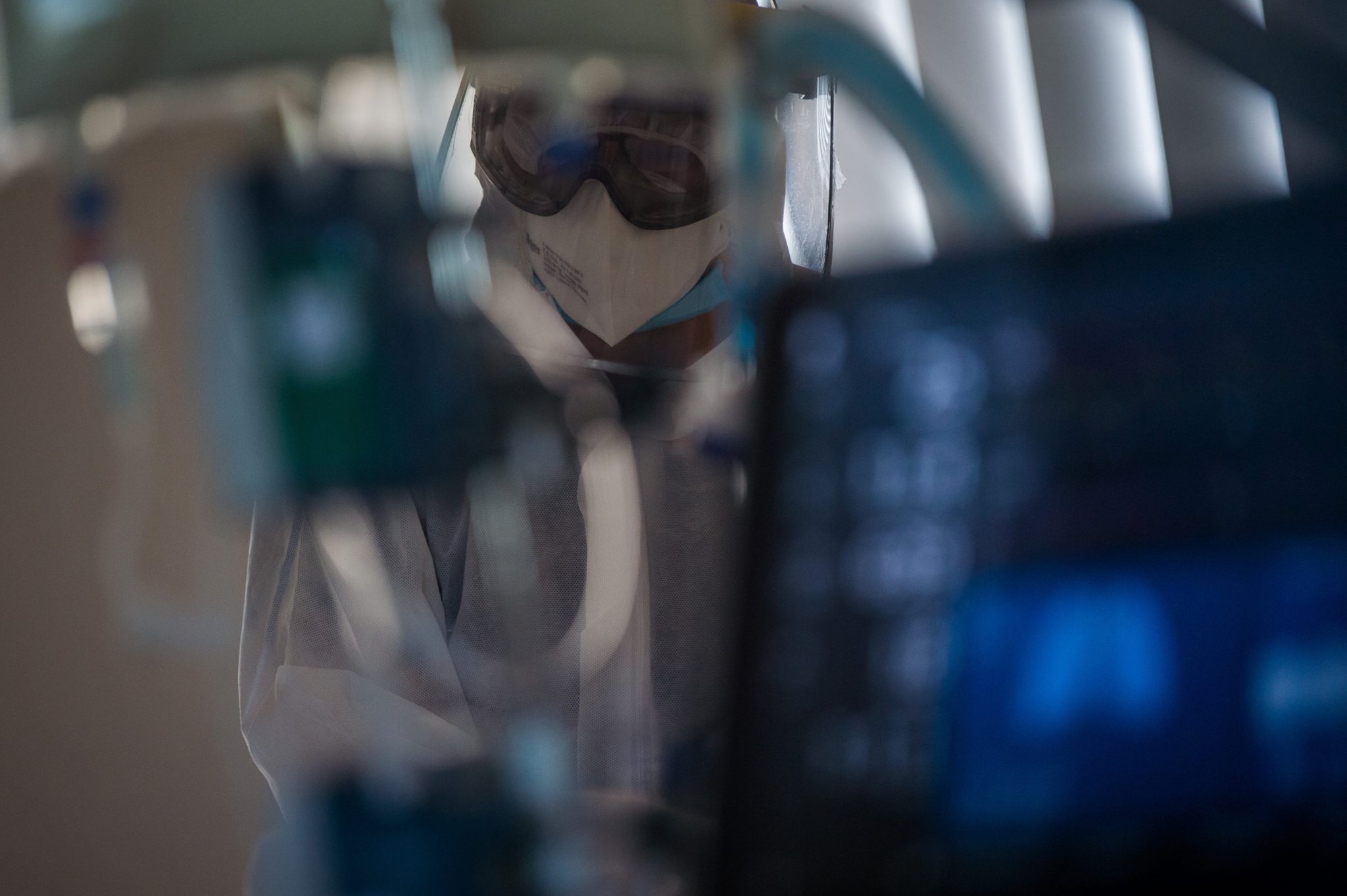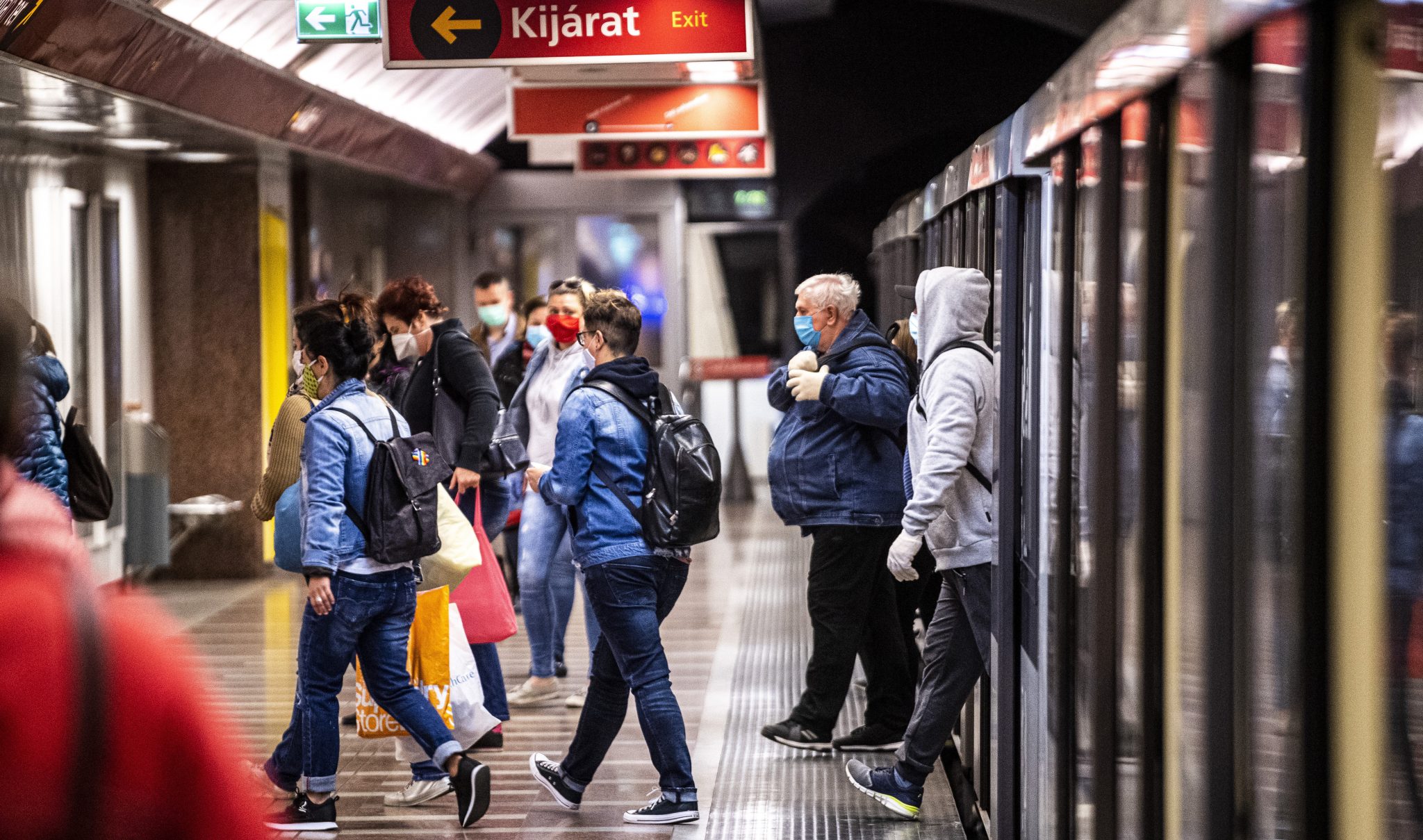
"A reduction of 93.5 percent can be achieved by masks alone, without keeping your distance - which is the most realistic way to get around on a bus," said virologist Gábor Kemenesi.Continue reading

While the Orbán administration does not plan to reintroduce restrictions, some cities and universities have already done so, most recently in the Hungarian capital. Mayor Gergely Karácsony shared what the restrictions exactly are on his Facebook page.
Gergely Karácsony said that he “would like to ask all Budapest residents to wear their masks on public transport for our safety.
The Municipality of Budapest does not currently have the authority to require the use of masks, but following the advice of the experts of the Hungarian Academy of Sciences, we strongly recommend covering the nose and mouth during travel.”
“Public transport has not been proven to be dangerous for the spread of the virus, it is good that more and more people are choosing to travel in Budapest, but I encourage everyone to use it, just wear the mask,” said the Mayor.
The Center for Budapest Transport (BKK) said that their “services are a safe choice for everyday travel, as regularly disinfected vehicles- as several national and international studies have shown- people have a much lower risk of getting sick than in public spaces where people spend long periods of time.” Their website, however, also encourages travelers to wear a face mask.
The leadership of Budapest would have made mask-wearing mandatory on public transport, but only the government is allowed to make such a decision, and the Orbán administration is against the introduction of any compulsory measures.
Karácsony also announced:
Unfortunately, we had to introduce restrictive measures in nursing homes.”
After the holidays, from November 2nd, residents who have an immunity card will be allowed to leave but will be isolated on their return to protect others and will be tested for possible contamination with rapid tests provided by the Budapest municipality. Residents can leave only with someone who also has an immunity card. Non-contact visits will still be possible upon the presentation of an immunity card.
We also see that European governments are taking action almost everywhere, and it’s time for the Hungarian government to do the same.”
Karácsony recalled that the current infection rate is at about the same level as it was a year ago at the same time. At that time, there were already very severe restrictions, for example, the wearing of masks was generally compulsory. He said that “the situation is indeed better than last year at this time, as vaccination is available to everyone, but experts agree that the use of masks should be mandatory in enclosed spaces.”
Some cities, similar to the capital, have already introduced stricter measures: In Eger, masks will be compulsory at masses, in Kazincbarcika at the local mayor’s office, at the municipal holding, at the Kazincbarcika Consolidated Kindergartens, at the Nursing Service, and at the Kazincbarcika Social Service Center.
There are also some universities that have made wearing masks compulsory again. For example, recently Semmelweis University but the University of Pécs, the University of Debrecen, and the Eötvös Loránd University (ELTE) already did the same in September.
The measures regarding the capital were decided by the Budapest Operational Group, which has been meeting weekly since the end of August. The mayor concluded by saying that he asks “for everyone’s understanding and patience. I know that we are all tired of the measures, but wearing a mask is the least we can do to protect ourselves from the spread of the virus, and the protection of our elders is more important than anything else. “
Featured image via Zsolt Szigetváry/MTI